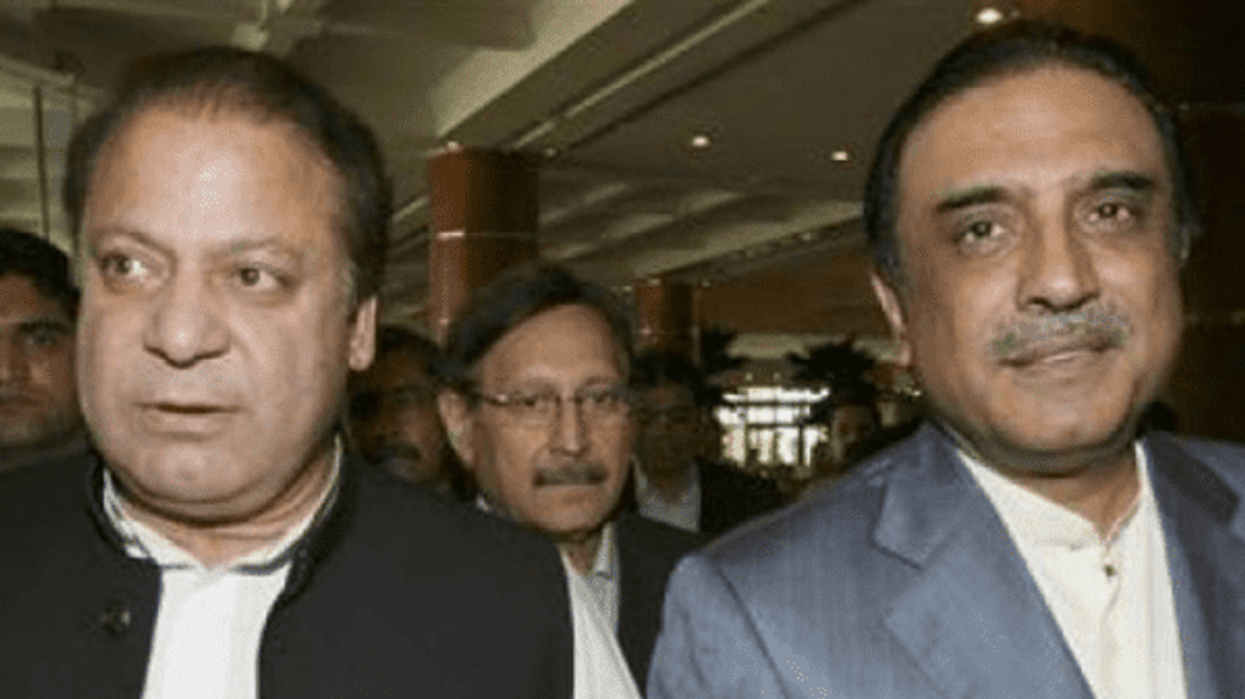Former Pakistan prime minister Nawaz Sharif and former president Asif Ali Zardari have reportedly held a meeting in the UAE, a media report said on Tuesday (27).
The purpose of the meeting was to consult and determine the timing of the next general elections in the country, as well as discuss "their respective share" in the future political setup.
Nawaz Sharif, the leader of the Pakistan Muslim League-Nawaz (PML-N), and Zardari, the co-chairman of the Pakistan Peoples Party (PPP), both belonging to the ruling coalition Pakistan Democratic Movement (PDM), met in Dubai on Monday afternoon.
The objective was to reach a consensus on several key issues, including finalising names for the caretaker set-up and determining the allocation of key positions if the two parties emerge victorious in the upcoming elections, Dawn News reported.
"The uncertainty surrounding the next general elections may end soon after detailed deliberations by the top leadership of the two main coalition partners in the federal government are concluded in the UAE," said the report, citing sources.
Insiders said that it was decided that elder Sharif of PML-N and Zardari of PPP, would "talk directly" on these issues instead of allowing a prolonged debate "at the lower level", which would be a waste of time.
Pakistan, currently in the throes of a major political as well as economic crisis, started preparations for the general elections with a meeting of the election commission recently. The PDM is also fighting the challenge posed by former prime minister Imran Khan.
The current National Assembly will complete its five-year term on August 12 and the fresh general election must be conducted within 60 days as laid down in the Constitution of Pakistan.
A PML-N insider said that the main agenda of the Sharif-Zardari meeting was elections in October or beyond.
"If the elections are held at their scheduled time, then the caretaker set-up in the centre will be of the PPP and PML-N's choosing after taking Maulana Fazlur Rehman on board, of course," the source was quoted as saying.
Monday saw the first meeting between the two sides, and it is expected that these huddles will continue until a consensus can be evolved on three major issues: a date for the general elections, the shape of the caretaker set-up and deciding whether to contest elections independently or make some seat adjustments, the report said.
Also on the table would be the controversy surrounding top appointments at two leading national institutions, the National Database and Registration Authority and the Pakistan Cricket Board.
"Sharif's daughter Maryam and Zardari's son Bilawal are already in Dubai, while prime minister Shehbaz Sharif is also expected to arrive there to become part of the parleys," the source said.
(PTI)












